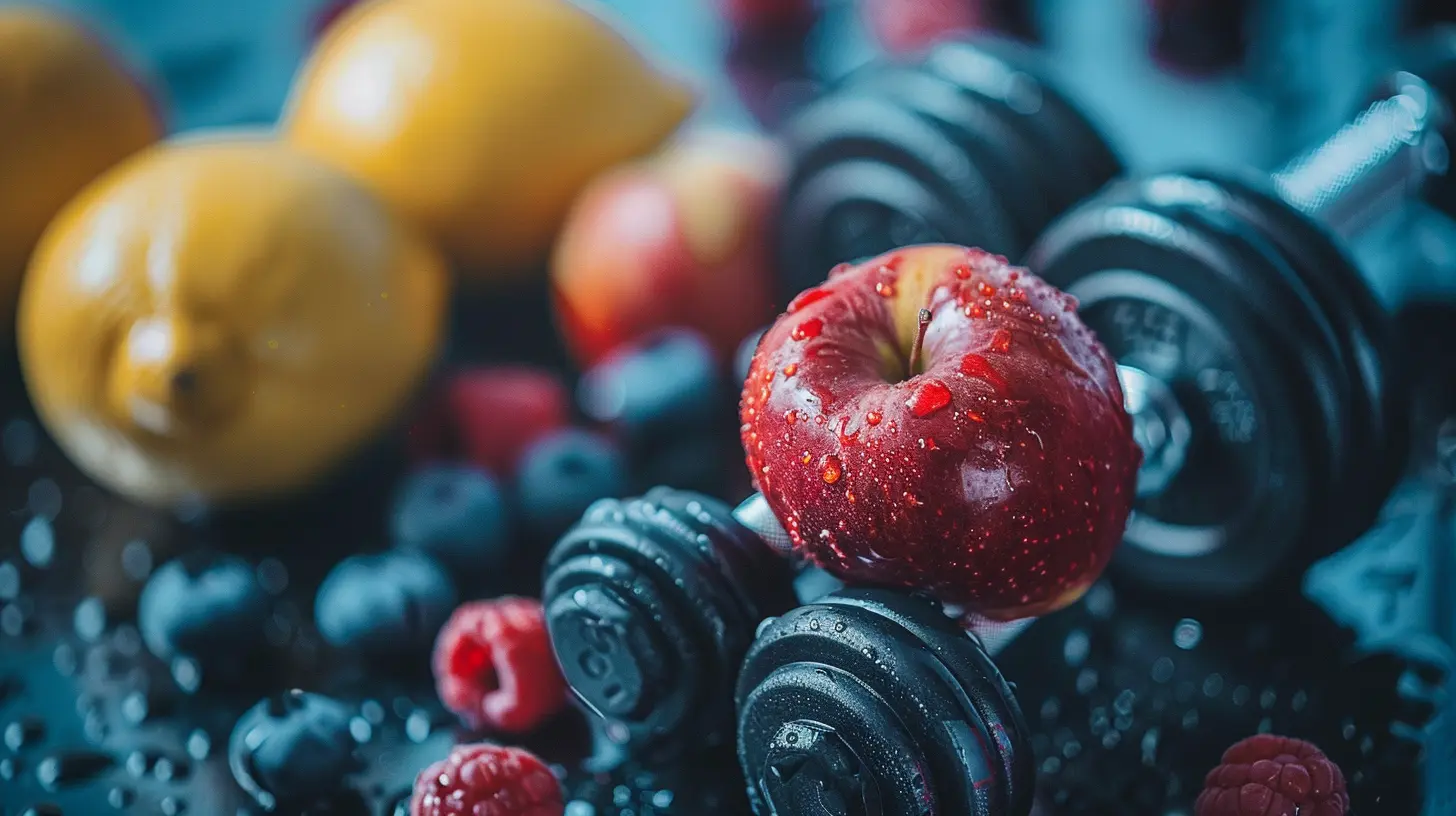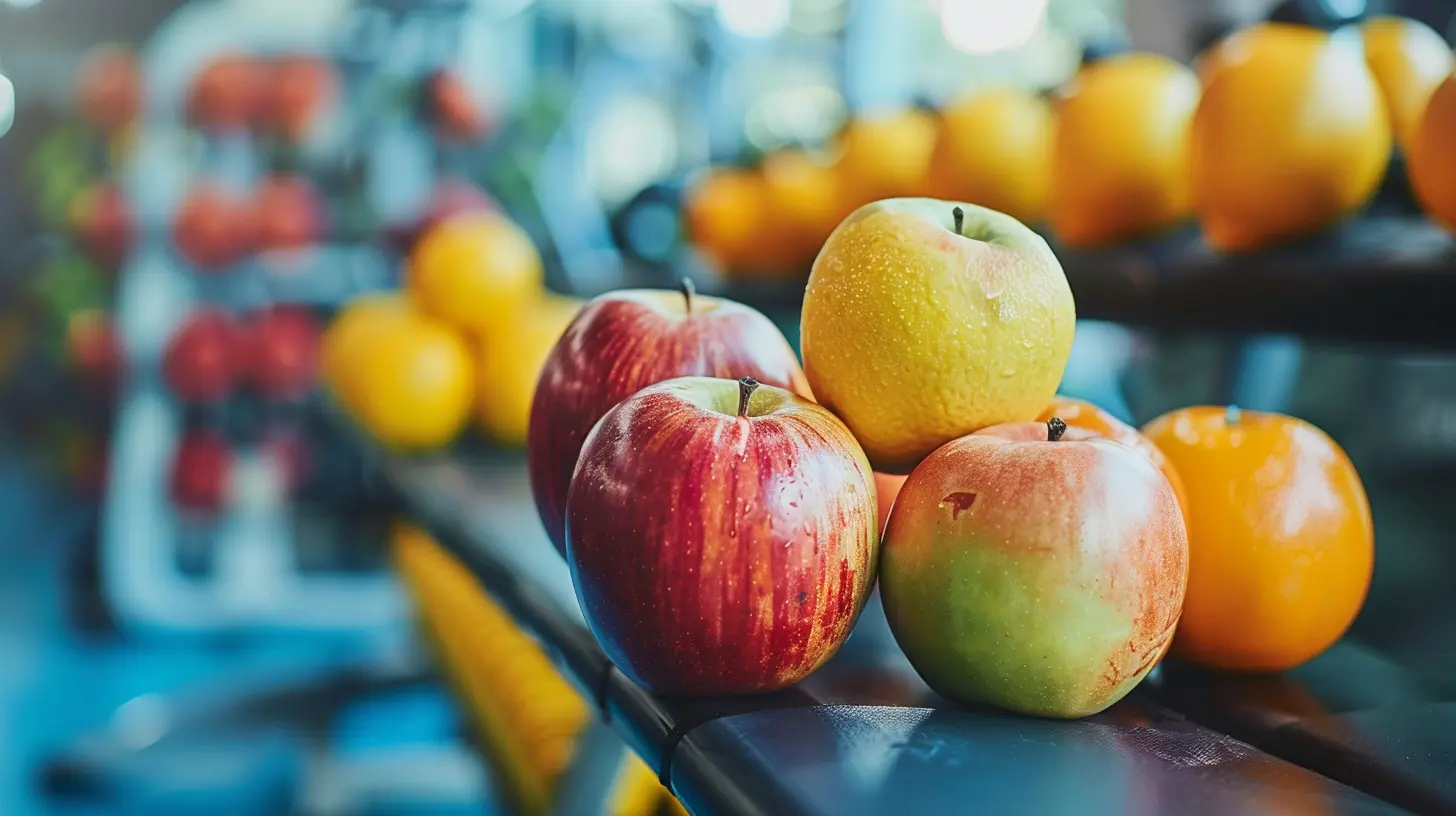Fueling Your Workouts: The Best Nutrition for Peak Performance
9 October 2025
Let’s talk about something that doesn’t get nearly enough hype when it comes to crushing your workouts—nutrition. Sure, you probably have your go-to playlist, favorite gym gear, and a solid workout routine. But if you’re not giving your body the right fuel, you might be leaving gains on the table, feeling sluggish, or hitting that wall way too early.
So, what should you eat to level up your energy, improve your performance, and recover like a champ? That’s exactly what we’re diving into. This isn’t just about eating protein shakes and calling it a day. We’re talking full-circle fuel—before, during, and after your workouts.
Let’s break it down and keep it real. Ready to change the game with what’s on your plate? Let’s get into it.
Why Nutrition Matters More Than You Think
You wouldn’t fill a sports car with low-grade gas, right? Your body is no different. The food you eat fuels every rep, sprint, and drop of sweat. Without the right nutrients, your energy tanks fast, muscles don’t recover properly, and your progress slows.What you put in your body sets the tone. Need more energy? Try carb-loading smart. Want better recovery? Dial in protein and hydration. It all ties together, and when you get your nutrition right, the results speak for themselves—stronger lifts, longer runs, and quicker recoveries.
Pre-Workout Nutrition: Timing and Strategy
The Power of Eating Before You Sweat
Your pre-workout meals or snacks are all about energy. Think of it like topping off your gas tank before a road trip. You want to load your body with the right kind of energy that burns steady—not the crash-and-burn kind.When to Eat Before Your Workout
Timing is everything here. Ideally, you want to eat a proper meal about 2–3 hours before your workout. If you’re short on time, a smaller snack 30–60 minutes before will do the trick.What to Eat Pre-Workout
Here’s what your pre-sweat session meal or snack should include:- Carbohydrates: These are your primary energy source. Think whole grains, fruit, or oats.
- Moderate Protein: Helps support muscle function and repair. Chicken, Greek yogurt, or a protein shake works.
- Low Fat and Fiber: Too much of either can make you feel sluggish or upset your stomach mid-burpee.
Sample Meal (2–3 hours before):
- Grilled chicken breast- Brown rice
- Steamed broccoli
Snack Option (30–60 minutes before):
- A banana with a scoop of peanut butter- Or a slice of whole wheat toast with honey

Intra-Workout Nutrition: Do You Really Need It?
Not all workouts need fuel in the middle. But if you’re going hard for over 60 minutes or doing intense endurance training (think marathon training, CrossFit, or two-a-days), your body might need some mid-session love.What to Consume During Long Workouts
For lasting energy and hydration, aim for:- Fast-digesting carbs: Sports drinks, energy gels, bananas
- Electrolytes: To replace what you lose through sweat—especially sodium and potassium.
Staying hydrated and fueled mid-workout can be the difference between hitting the wall or sprinting through the finish line.
Post-Workout Nutrition: Recovery is Where the Magic Happens
Here’s where most people drop the ball. You finish strong, kill the workout, and then... skip the post-fuel. Big mistake. Post-workout nutrition is key to muscle recovery, glycogen (energy) replenishment, and getting you back in the game faster.The Anabolic Window: Myth or Real?
You may have heard of the 30-minute "anabolic window" where your body is supposedly primed to absorb nutrients. While that timing isn’t an exact science, eating protein and carbs within a couple of hours after training is still a smart move.What to Eat Post-Workout
You want a mix of:- Protein: Aim for 20–30 grams. Think lean meats, eggs, or a quality protein shake.
- Carbs: Replenish what you burned. Sweet potatoes, rice, fruit—carbs are your friend here.
- Fluids and Electrolytes: Rehydrate and rebalance.
Sample Post-Workout Meal:
- Grilled salmon- Quinoa
- Spinach salad with olive oil
- A glass of water or electrolyte drink
Macronutrient Breakdown: How Much of What?
Getting your macros right can fine-tune your performance and recovery. Here’s a simple breakdown to start with:- Carbohydrates: 45–65% of your daily intake
- Protein: 15–25%
- Fats: 20–35%
Of course, these numbers can vary based on your goals (building muscle vs. losing fat), workout intensity, and even your genetics.
Hydration: Your Secret Weapon
Don’t underestimate the power of water. Even a slight drop in hydration can tank your performance—seriously. Muscle cramps, fatigue, and slower recovery? Often tied to not drinking enough.Hydration Tips:
- Drink water consistently throughout the day—not just during workouts.- For intense sessions, add electrolytes (especially if you're a heavy sweater).
- Not a big fan of water? Spice it up with slices of lemon, cucumber, or even a dash of sea salt.
Supplements: Helpful Additions (But Not Replacements)
Let’s be clear—supplements aren't magic. They're called "supplements" for a reason. But when your diet is dialed in, certain ones can give you that edge.Popular Performance Supplements:
1. Whey Protein – Fast-absorbing, perfect for post-workout recovery.2. Creatine Monohydrate – Increases strength, power, and muscle volume.
3. BCAAs – These may help reduce muscle soreness and improve endurance.
4. Caffeine – A proven performance booster (but don’t overdo it).
5. Beta-Alanine – Great for high-intensity training, it helps buffer acid buildup in muscles.
Always make sure you're sourcing from reliable brands and, if needed, consult with a registered dietitian or physician before starting any supplement routine.
Real Talk: Common Nutrition Mistakes to Avoid
Even with the best intentions, it's easy to drop the ball. Here are a few common missteps to watch out for:- Skipping meals (especially post-workout): You’re hurting your recovery more than helping your calorie count.
- Too much junk "energy" before workouts: Sugary energy drinks and candy bars might give a quick spike but lead to a rapid crash.
- Not eating enough: If you’re training hard, your body needs more fuel—not less.
- Ignoring hydration: Drink up, folks. It genuinely affects everything.
Listening to Your Body: The Ultimate Nutrition Hack
You don’t need a rigid eating schedule or fancy meal plan to fuel yourself right. The best hack? Tune in to your body. Feeling sluggish during workouts? Maybe you need more carbs. Sore for days? Up the protein and hydration.Experiment. Adjust. Repeat. Your body will tell you what it needs—if you’re willing to listen.
Sample Daily Meal Plan for Peak Performance
Here’s a basic, balanced day of eating for someone doing regular high-intensity workouts:Breakfast
- Scrambled eggs with spinach and whole-grain toast
- A banana
- Coffee or green tea
Mid-Morning Snack
- Greek yogurt with a handful of berries
- Almonds
Lunch
- Grilled chicken wrap with veggies and hummus
- Side of mixed greens
Pre-Workout Snack (60 mins before)
- A slice of toast with almond butter
- Half an apple
Post-Workout Meal
- Salmon with quinoa and steamed veggies
- Coconut water or electrolyte drink
Evening Snack
- Cottage cheese with a drizzle of honey
- A small handful of walnuts
Wrapping It Up: Your Body, Your Fuel
Peak performance isn’t just about training harder—it’s about training smarter. And that starts in the kitchen. Food isn’t just food. It’s fuel, it’s recovery, and it’s performance enhancement straight from your plate.So next time you lace up your sneakers or roll out your yoga mat, ask yourself: Did I fuel up right?
Because trust me—your body knows the difference.
all images in this post were generated using AI tools
Category:
FitnessAuthor:

Everett Davis
Discussion
rate this article
1 comments
Sloane Lynch
In the quest for peak performance, what if the secret ingredient lies not in supplements, but in the shadows of our plates? Uncover the hidden truths of nutrition that elite athletes guard closely. What you eat might just unlock your body's ultimate potential—are you ready to delve deeper?
October 20, 2025 at 11:51 AM

Everett Davis
Absolutely! Nutrition is often the unsung hero of athletic performance. By focusing on whole, nutrient-dense foods and understanding their impact on our bodies, we can unlock our true potential. Let's explore these hidden truths together!


